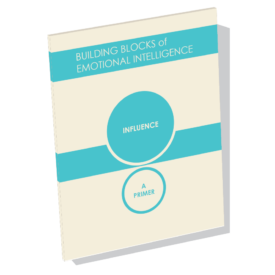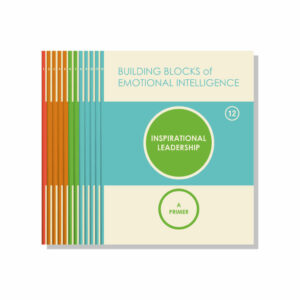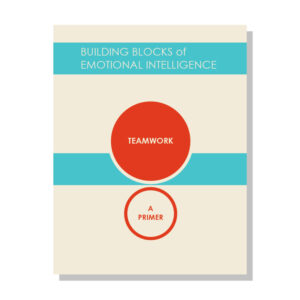

Leader’s Perspective: What Separates The Best from the Rest in Leadership
August 10, 2017 Time to read: 5 min.
What inspires us to be better leaders? Was it a particular boss, a powerful article or a significant experience? For me, the answer is relatively simple. Taking time to reflect on people I have worked for and with as well as countless other experiences as both a manager and a parent, I can single out the most important lesson I have learned about leadership.
I was ten years old and my paternal grandfather shared a lesson with me from his time in the U.S. Marine Corps. What he shared was simple, easy to understand and has stuck with me throughout my career in leadership. The lesson was that to lead a group of people, one only needed to know four things. He said that if I got these four things right, whoever I was leading would “follow me into the jaws of Hell!” This painted a vivid picture for a ten-year-old and is probably why I’ve not only remembered it all these years, but have put them to practice and have come to know first hand that he was right.
My Grandfather’s 4 leadership musts:
- Make sure my team has dry socks
- Make sure they have full bellies
- Treat them with Respect
- Above all, treat them as Equals
This may be sound advice for a team of Marines on the move, but for business?
Dry socks and full bellies
Let’s break it down. Ensuring your team has “dry socks” and “full bellies” is an easy concept to translate to the world of business. Let’s assume dry socks and full bellies are surrogates for basic needs, safety, comfort, etc. This may take different forms in different business environments, but essentially we are making sure people get paid sufficiently, have a decent environment to work in, etc. It is Maslow’s Hierarchy of Needs in practical terms. In my experience most businesses are able to address these basic human needs, but by themselves these aren’t enough.
Respect
The third item the Colonel instructed was “treat them with respect”. What does this mean? In many hierarchical structures it is often those at the top of the hierarchy who demand “respect” from those at the bottom. They may develop a sort of begrudging politeness and respect for their position but not the depth of respect that is the hallmark of good leadership.
What we are talking about here is the difference between “treating someone with respect” due to their position in the hierarchy and “having respect for someone” because they are fellow humans.
On the surface this sounds self evident, but in my experience fewer leaders/managers are able to embrace this step than the first two. Why is that? I don’t believe that it is because these managers don’t care about their employees. I think they care, but maybe about the wrong things. Often they see the team as “their” employees, and co-workers are often seen as tools to get the jobs done. Ironically, most managers have been the employee at some point and quickly upon assuming the mantle of management they forget what it was like to be in the shoes they just vacated. Additionally, some managers try to keep a distance from their employees knowing that they may have to discipline them in the future. They may also worry that these employees might one day decide to leave the organization and move on in search of brighter pastures.
The mantra becomes “don’t get too close, keep it professional” and is achieved by maintaining your distance by not connecting. I don’t think that’s what the old Marine was getting at. He’d lost plenty of soldiers to combat, reassignment, the end of their enlistment, or post-war reductions in force. I think he was getting at this essential idea””treating your team with respect requires two conditions to be present: self-awareness and connection.
Developing self-awareness of what motivates you, what triggers you, and a clear sense of your emotional and physical boundaries is critical. If you know what’s yours, you won’t be inclined to take on another’s baggage. If you are self-aware, you are likely cognizant of personal work you need to do and similarly are accepting if not comfortable with some of your vulnerabilities or shortcomings. This makes it possible for you to lead with confidence, identifying the qualities you need on your team and allowing those with skills you may not have to step up and participate fully. You don’t need to have all the answers””as long as you are aware of this and don’t see it as a flaw, but rather the way it is.
When you are able to know and respect yourself, you can respect others as individuals. This is an essential quality in good managers and leaders alike. It’s not something you are born with but something you have to work to develop. It necessitates stepping away from the ego-centered label of who you are and where you fit in the hierarchy and into the reality of who you are. As Steve Miller sang, “The question to everyone’s answer is usually asked from within.”
Equality, Even In Hierarchy
In the context of the qualities of leadership outlined by the Colonel, connection is just what it sounds like: knowing the people you work with and letting them know you. Caring about them as more than simply tools to accomplish the task, but as whole people with hopes and dreams, imperfections, joys and sorrows. You need to have enough confidence to show them who you are, sharing that you are more than just the boss, you are a human being who also has hopes and dreams, even imperfections.
In a business hierarchy this can be a challenge. As you open up and show your vulnerability, your caring, and your humanity, you will start to notice little things. You learn about people’s lives, and yes, this makes it all the more difficult if one day you have to lay them off or fire them. This is the whole point of connection! People matter and when you have to let someone go, it makes sense that you would feel some loss. It doesn’t mean you shouldn’t let them go, but in feeling that grief you know that they are important to you as people, not just as tools. When you find yourself grieving the person, not necessarily the job they were doing, you have arrived at the fourth stage. You experience equality with them, not in the hierarchical sense but in the true sense of being equal as a human being. This in no way undermines the authority of the hierarchy, but it cements a personal connection that can be every bit as valuable in terms of your leadership as your position in the organizational structure.
When you show up with self-awareness and connect, people will gladly follow your leadership. It may not happen immediately: your very position in the hierarchy makes you someone to fear. You have the power to hire and fire. You can misuse your authority. I think the last piece of this is something the Colonel didn’t specifically state, but is implicit in treating our teams with respect and as equals, and that is trust.
Your job won’t make you trustworthy. There is no mantle of trust that will be conferred upon you based on your position in the hierarchy.
This is something you have to earn through your own self-awareness and willingness to connect authentically with your team. You are going to have to show your team and prove to them that you are self-aware, willing to connect and can be trusted. When this happens, you will have formed a team that will have your back, as you have theirs. A team that is not only capable of, but a team that will perform great things and in so doing with metaphorically “follow you into the jaws of Hell”.
Recommended Reading:
 Learn more about the intersection between leadership and emotional intelligence in our new Primer series, featuring Daniel Goleman, Richard Davidson, Peter Senge, and other thoughtful contributors. Primers available are:
Learn more about the intersection between leadership and emotional intelligence in our new Primer series, featuring Daniel Goleman, Richard Davidson, Peter Senge, and other thoughtful contributors. Primers available are:







